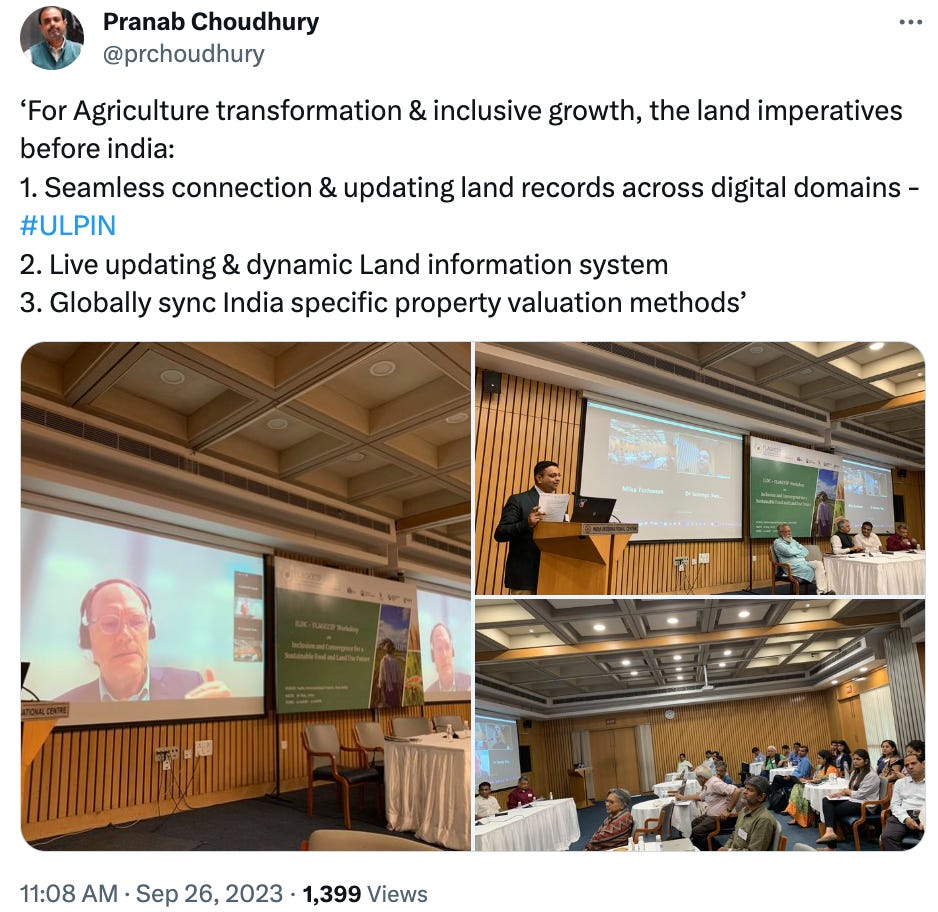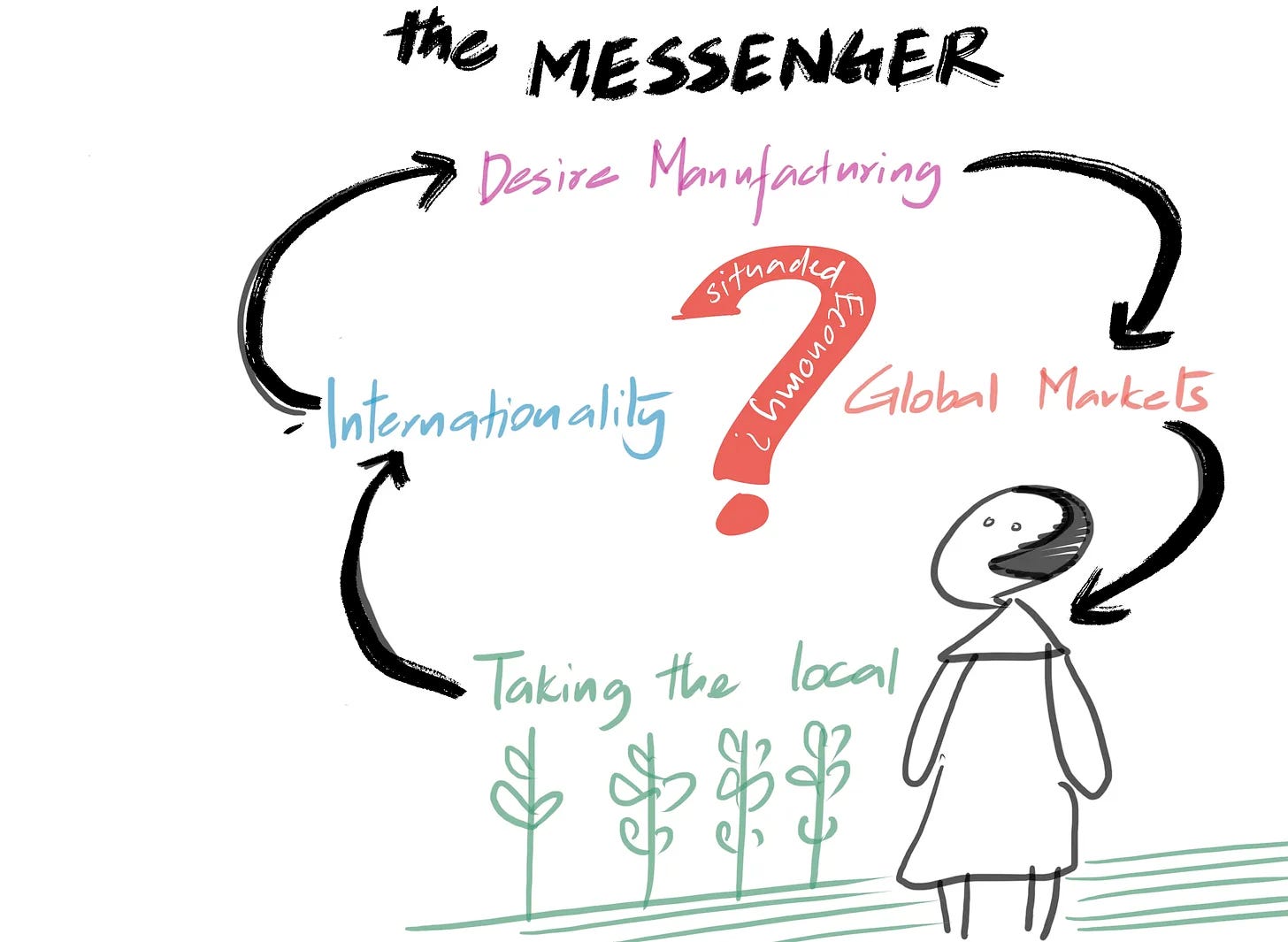The Crimes Behind the Food We Eat
Seven Meditations from the interstices of food and agriculture in maddening times of Climate Chaos
Dear Friends,
I am in the middle of rethinking the format of this newsletter. I am going to be trying a few experiments. Here are seven meditations that made me ask fundamental questions about the emergent food and agriculture systems of the future. Feel free to respond with your evocations and reflections in the comments if any of these meditations speak deeply to you.
Is Bioeconomy a surrogate economy to absolve us from the crimes behind the food we eat?
“For most of the twentieth century, distant-water fishing—much of which takes place on the high seas—was dominated by the Soviet Union, Japan, and Spain. But the collapse of the U.S.S.R., coupled with expanding environmental and labor regulations, caused these fleets to shrink. Since the sixties, though, there have been advances in refrigeration, satellite technology, engine efficiency, and radar. Vessels can now stay at sea for more than two years without returning to land. As a result, global seafood consumption has risen fivefold.” -
(From the fascinating New Yorker Story on ‘The Crimes Behind the Seafood We Eat”:2. How long will we play political games and postpone land reforms in India, a critical lever to unlock cheaper cost of credit in smallholding contexts?

If we are really serious about reducing food waste, can we confront our collective delusions about grade and quality and learn to embrace misfits and imperfect foods?

Is ‘degrowth’ aspirations a delusion that we hope will ‘magically dissolve the mess through sheer magical-rhetorical force’?
“I’ll be turning 50 in the coming Jan. I find myself in a position to influence and decide on a lot of things — at some scale — that could have an impact on climate. On the other hand, the lock-in into energy and materials, outcomes and measures of success that are deeply embedded in my head are from the 90s, even the 60s and 70s — when virtues and wins were largely correlated with ever more use of energy and material. I have personally “logically” arrived at a different place but the deep mental frames don’t shift so easily — I still glance again at a fast car or check out a new snazzy phone or a vacation in a different continent or get a kick out of a fast expressway or some such energy and material guzzling activity. This when I’m almost an anomaly for our generation and realize and acknowledge the huge negative trade-offs these motivations represent — most in my generation are either completely oblivious or deliberately neglect even these thoughts, and are saddled with a linear way of thinking with little ability for systems thinking or even an acknowledgement of complexity.” - Sameer Shisodia, a dear friend of mine, in his Medium Blog
What is your Climate Postsure? Are we better off if we learn to accept our part in the grand play and deploy deeply ‘fractally attuned’ energies of meaningful agency?
“Humans have a strong tendency to confuse a psychologically satisfying amount of agency with a materially effective amount. A broad culture of what we very-online people call cope rules everything around us when it comes to climate. It is a deep-rooted tendency, and an understandable one. Much as we might intellectually desire such laudable goals as the survival of almost everybody through a planetary crisis, our sense of meaningful existence is tied to individual agency. We’d rather stride grim-faced with a gun across a devastated post-apocalyptic landscape, masters of our own fates, than feel helpless within a world that’s largely doing fine and even providing for us.” -
in ‘My Climate Posture’Are we deceived by Climate Streetlight, ‘thinking the sole driver of the energy transition is halting climate change’?
“Looking only under the climate streetlight contributed to the misconception that Putin’s War would slow the energy transition, as no one would be able to ‘afford to be green’. It means many are surprised that China is the leader of the energy transition: Why would a country that prioritizes development prefer to invest so much into climate mitigation? It leads to a focus on band-aid solutions like carbon capture and storage. It leads to thinking in terms of carbon footprinting and ESG, not risk and opportunity.” - The Eight Deadly Sins of Energy Transition
What does it take to build a ‘situated economy’ in smallholding farming contexts?
“The situated economy is a view to bring economic progress, environmental concerns and the value of traditional knowledge systems into a system that enables a flourishing society. In simple terms, enhancing the capacity of local communities to transform their local economy which will eventually positively impact their livelihood and prosperity.”- Emergent Economy
So, what do you think?
How happy are you with today’s edition? I would love to get your candid feedback. Your feedback will be anonymous. Two questions. 1 Minute. Thanks.🙏
💗 If you like “Agribusiness Matters”, please click on Like at the bottom and share it with your friend.




Thanks for mentioning our work on the Situated Economy in your newsletter!